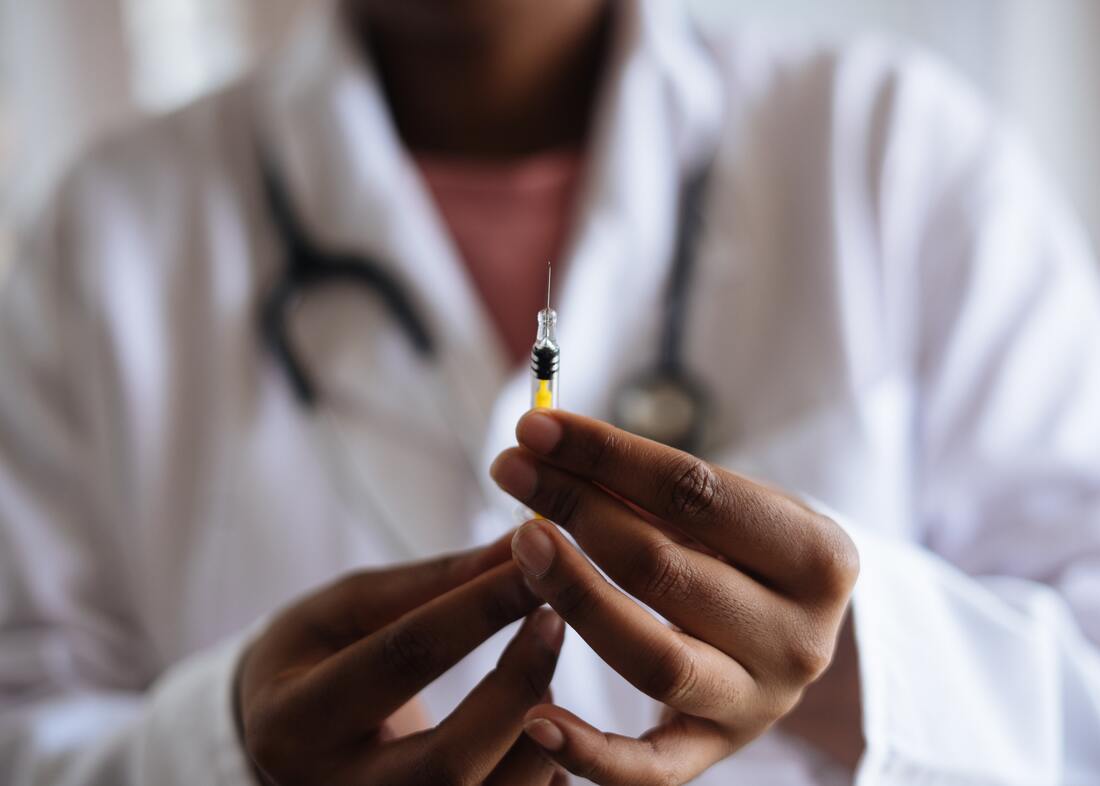|
A contraceptive injection is a long-acting hormonal method that prevents pregnancy by inhibiting ovulation. The injection contains a synthetic version of the hormone progesterone, which is naturally produced in the body by the ovaries. In addition to preventing ovulation, contraceptive injections also trigger a thickening of cervical mucus that suppresses sperm’s ability to move through the uterus. If a sperm is unable to reach and fertilize an egg cell, then pregnancy cannot occur. The contraceptive injection is 99% effective at preventing pregnancy when readministered after the effects wear off. The most common injection, depot medroxyprogesterone acetate or Depo-Provera, is capable of preventing pregnancy for up to 12 weeks. Contraceptive injections can be administered in different dosages and target different injection sites. Depo-Provera is typically injected into the muscles, while Depo-SubQProvera is a smaller dose that is injected just beneath the skin. Both dosages produce similar effects and are useful tools when preventing pregnancy. Contraceptive injections have additional benefits alongside preventing pregnancy. As a long-acting method, the injection does not require users to remember to take daily action to induce a contraceptive effect. Injection users also don’t have to worry about interrupting sexual encounters to ensure that the contraceptive method is being used properly. Depo-Provera injections have been administered to mitigate or completely eliminate the painful symptoms of menstruation and decrease the risk of endometrial cancer. Researchers developing non-hormonal male contraceptives are working to create a reversible vasectomy that involves injecting a hydrogel polymer into the vas deferens to block the flow of sperm. The gel is removed by flushing each vas deferens when users decide to regain their fertility. This long-acting method was designed to prevent sperm from exiting the urethra, without affecting pleasure during ejaculation. For more information about novel non-hormonal male contraceptives, please visit our website. Nuts & Bolts: Injectables Sources/References: Mayo Foundation for Medical Education and Research. (2022, February 22). Depo-Provera (contraceptive injection). Mayo Clinic. Retrieved from https://www.mayoclinic.org/tests-procedures/depo-provera/about/pac-20392204#:~:text=Depo%2DProvera%20is%20a%20well,ovaries%20from%20releasing%20an%2https://www.mayoclinic.org/tests-procedures/depo-provera/about/pac-20392204#:~:text=Depo%2DProvera%20is%20a%20well,ovaries%20from%20releasing%20an%20egg.0egg. Jun.buenaflor. (2019, May 7). Contraceptive injection. Family Planning NSW. Retrieved from https://www.fpnsw.org.au/factsheets/individuals/contraception/contraceptive-injection For additional publications related to male contraception and the male reproductive system, please visit our publications page:
1 Comment
11/3/2023 11:23:06 am
Los métodos anticonceptivos empoderan a las personas para tomar decisiones informadas y autónomas sobre su salud reproductiva y su vida sexual.
Reply
Your comment will be posted after it is approved.
Leave a Reply. |
Categories
All
Archives
June 2024
|
|
|
Donate to Male Contraceptive InitiativeYour generous donation makes a difference!
|
© Male Contraceptive Initiative. All rights reserved.


 RSS Feed
RSS Feed
